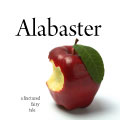 One of the things I am hoping my conversation system will facilitate is a collaborative approach to projects, in which one person is in charge of managing the code while others contribute content. To that end, I’ve put together a little collaborative authorship experiment.
One of the things I am hoping my conversation system will facilitate is a collaborative approach to projects, in which one person is in charge of managing the code while others contribute content. To that end, I’ve put together a little collaborative authorship experiment.
I’ve written the beginnings of a one-scene, one-NPC game. (Best to keep this simple to start with.) You’re invited to play with it (and look at the source code, if you want). It’s part Snow White, part Halloween story. (Check here for the latest posts on this project.)
If you come to a point in the conversation where you want to say something but your chosen dialogue is not implemented, the system will invite you to write your own dialogue, and will ask you some questions about how that dialogue should fit into the existing scene. It will generate the appropriate source code and store it in a file called NewConversation.glkdata, in the same directory with your game file. If you email that to me, I’ll compile it into the game and release a new version (and add you to the author list). My theory is to do this for about a week (until Nov. 3), then stop accepting new entries, put in some endings based on the conversation directions that emerged. (Though probably I won’t do that Nov. 4. I expect to spend election day obsessively refreshing CNN, and I’d be lying if I claimed otherwise.)
I’ll also welcome any feedback about how well the system works and/or how confusing you find it to use.
It may be that this doesn’t prove very interesting to people, but that would also be useful feedback — if no one wants to participate in projects like this, then at least I’ll know that supporting them isn’t a top priority!
Anyway, if you want to play along, the opening game is here. (It does require indexed text handling, so you will need a recent Glulx interpreter.)
Will you be doing interim releases as you get info? I like the idea, but the best part to me would be in having other people modify my changes, to see how far away from your initial concept it can get.
Will you be doing interim releases as you get info?
Oh, yeah, absolutely.
Also, as a data point: the game works very nicely on my Ubuntu Linux system using the packages provided by Peer Schaefer (from http://www.wolldingwacht.de/if/glulxe/ ). I imaging Chris Armstrong’s versions (from http://radix.twistedmatrix.com/2008/10/glulxe-packages-for-ubuntu.html ) would also work fine.
The latest version of Gargoyle (http://code.google.com/p/garglk/) works fine on Linux as well.
(To build Gargoyle on my system, Ubuntu 8.03, I had to uncomment out the PKGCONFIG line in the Jamrules file, then comment out the next one. It also didn’t compile Agility for AGT, but I’m not going to lose any sleep over that.)
This project sounds amazing. I can imagine dialogue options improving immensely by distributing the work among random collaborators…
I’ll be giving this a whirl, and looking forward to the results :)
A fractured fairy tale again, seems to be your favorite. Best of luck!
A fractured fairy tale again, seems to be your favorite.
I don’t know about “favorite”, but it seemed like a convenient thing for this project — it means that authors coming in will all have some shared background without us having to specifically invent backstory and then argue over it.
Obviously *some* backstory will still be invented, but this seemed like a more straightforward place to start.
This is really interesting. It’s like those “interactive stories” you see on some places, but probably without the poor writing quality and dashed-off nature of so much of it. Later today I’ll see what I can do with this.
I like very much. :)
A question, though: this doesn’t seem to allow me to write more than one step of dialogue; any back-and-forth would either have to wait for subsequent new versions from you, or else “cheating” by writing several steps, and changing the data file or writing comments to you. Which of these do you envision enterprising contributers to use?
A question, though: this doesn’t seem to allow me to write more than one step of dialogue
This is not quite true: if you immediately write another line of dialogue after a first one, the program will first ask whether it should go after the quip that’s actually coded in, and then ask whether instead it should go after the quip you just wrote. In this way you can generate a continuous thread.
It’s not perfect, I admit, but it gives you a little more latitude. Of course if you want to write comments to me, that’s fine too. (Some people already have.)
Very interesting… I added a brief exchange about the silver chain.
I added a brief exchange about the silver chain.
But you haven’t emailed me the exchange, so it’s not built in. Did you want to do that?
I got interrupted and ended up quitting the program without closing down properly. I couldn’t find the output file… is it created automatically, or only when you explicitly save or exit the game?
It’s created automatically at the beginning — is it possible it wound up in some other directory? (It shouldn’t have done, but I suppose it’s conceivable if your interpreter is storing data files elsewhere than where I expected.)
Dennis: When running Zoom on my mac, I found that the file had been deposited in my home directory, and not in the directory that the Alabaster.gblorb file was in.